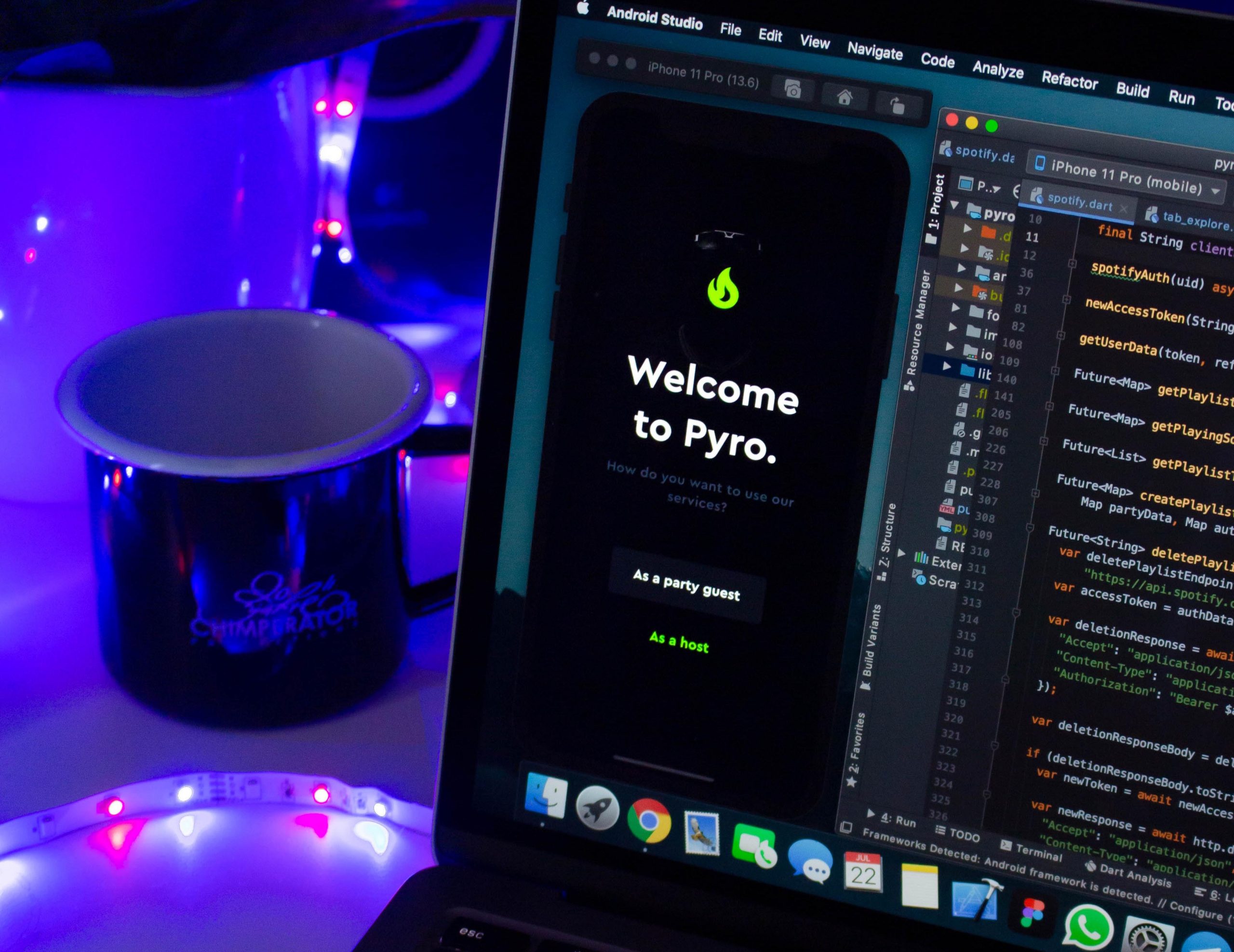Are you a web developer and want to try your hands in mobile application development? If yes, React Native, a cross-platform application development framework will help you. A lot of alternatives are there but here in this article, we will discuss the benefits of using React Native for mobile app development.
Table of contents–
- What is React Native
- Why React Native
- Who created React Native
- Who is using React Native
- Benefits of using React Native
- Pros and Cons
- Alternatives of React Native
- Some sources to learn React Native
What is React Native?
React Native is a highly specialized JavaScript Framework to build mobile applications. You all must have heard about that for Android development you would need Android studio, and for iOS development you would need Swift and Objective-C. But the main plus point of React Native is that you would be able to build mobile apps for both these platforms. That is why it is a cross-platform mobile app development framework.
Think that you have developed a web application using the React.js library and you need a mobile application for it. You don’t have enough time and developers. In this situation, React Native will help you.
Why React Native
You can develop a mobile app for the Android platforms using the Android studio platform, and iOS apps using Xcode. But it takes a lot of time because, to develop Android apps, you need to learn Java and for iOS app, you need to learn Swift/Objective C.
That is why cross-platform mobile app development frameworks are doing great nowadays. React Native is not only the one in this category. Flutter, Ionic, Xamarin, etc. are for the same purpose. But Why React Native?
- React Native is a JavaScript framework and you can take advantage of all the packages in npm. A lot of packages are there, specially coded for React Native. So that you can reduce the workload.
- Also, you can convert your React web app to a mobile app easily with React Native.
- Huge community support will help you throughout the development.
Who created React Native
The Facebook company is behind the React Native framework. They implemented it in their own products, Facebook, Instagram et.
Who is using React Native
A lot of companies are using React Native to build mobile apps. Here is the list of some most popular companies that use React Native.
There are many more companies that use React Native for its highly beneficial features that it offers, but the above list companies are some of them.
Benefits of using React Native
Now, let us have a look at the top 10 benefits that React Native offers to its users.
1. Cross-platform support
I am sure that everyone loves that fact when they pay for less and get more out of it. The same is the case with everyone’s favorite React Native. This JavaScript Framework is such a massive package deal that no one would deny to it as with the help of it you can do mobile development with the help of your knowledge in Web development and for both platforms that are Android and iOS.
You would be able to create the same application for both platforms at the same time, although there would be some complications. But the React Native team is working on it regularly to provide the best experience to their users.
2. Building Faster Native apps is easier
React Native is very different from those JavaScript frameworks that offer slower service. In the case of React Native, you will notice that they have focused more on providing high-quality work within a short interval of time. One of the reasons behind its fast working is its framework that is React JS UI.
3. Platform support
The fourth benefit in the list is that you don’t need any other platforms to support, such as Swift, Objective-C or Java. React Native would be able to provide you with high-quality service under mobile application development.
4. Users feel high transparency
It works extensively on mobile UI. Moreover, it also compares it’s UI with other available platforms so that the user can feel high transparency.
5. JavaScript is only required for Android and iOS app development
As in Android you work with Java, and for IOS you work with X-Code, but when you use React Native, you would be able to develop applications for both platforms with the help of JavaScript only.
6. Converting a React web app to mobile app is easy using React Native
It is so simple to work with. Moreover, developers would be able to convert their web applications into a mobile-based application with the help of React Native.
7. React Native apps perform as same as Native apps
Every application that’s created with React Native would be able to perform like a native app easily.
8. Usage of third-party plugins are allowed
You would be able to use third-party plugins in it, and you will never face any lag in the running of those plugins.
9. Used by some giant companies
React Native is being used by several companies, and it still growing regularly. Several updates are being included to make it better than before.
Pros & Cons
Let us have a look at the list of Pros & Cons of React Native
Pros
- React Native is best known for providing high-quality and faster service to its users.
- Developers would be able to reuse the codes that they have created with React Native for different platforms.
- You would be able to use a feature called Hot Reloading with the help of which making changes in an application built with React Native.
Cons
- The first disadvantage the React Native is facing that it is new, and not everyone knows about it.
- If you are new to development, then it could be a bit difficult for you to learn React Native programming.
- Although it is fast it takes more time in initializing.
Alternatives of React Native
React Native is a type of JavaScript Framework that offers several features that no other platform can provide you. However, still, several competitors are enhancing their experience so that they can take over React Native. Those alternatives of React Native are as follows.
1. Flutter
Here’s an entry from Google, with the help of which developers can create beautiful native IOS and Android applications in a record time. Dart, a powerful programming language is used to code mobile apps using Flutter. Dart language is so much fast and efficient compared to any other languages.
2. Ionic
Ionic Framework is the free, open-source mobile UI toolkit for developing high-quality cross-platform apps for native iOS, Android, and the web—all from a single codebase.
It gives us the freedom to write our code in React, Angular, or Vue.js. It is easy to build and deploy a mobile application using the technology we already knew. This is the main advantage of the Ionic framework.
Other features of this framework are,
- 100+ mobile-optimized React UI components
- Standard React tooling with
react-dom - iOS / Android / Electron / PWA
3. Xamarin
If we are good in .NET or C#, we can definitely build a mobile application also. Xamarin a free cross-platform mobile application development framework by Microsoft is the tool for it.
5. Apache Cordova
It is also a free and open-source mobile application development platform that uses HTML, JavaScript and CSS for developing a mobile application.
We can develop apps that support multiple platforms with one codebase using Apache Cordova.
4. PhoneGap
Adobe PhoneGap is a distribution of Apache Cordova. With the help of PhoneGap, you would be able to create cross-platform mobile applications quickly. The steps are very easy in building a mobile app using PhoneGap.
- First, download a desktop application by PhoneGap.
- Download a mobile app.
- Start developing.
If you are a bit confused, the official Getting Started guide will help you.
Some sources to learn React Native
We can learn React Native easily. If we have a basic knowledge in React it gets easier. Otherwise, we first want to learn a bit about JavaScript/React. The below URLs will help you with this.
What Are the Benefits of Using React.js for Web Development
After learning React, we can easily step towards React Native. Install React Native on our system first, and learn some basics. The Getting Started guide will help us in this.
After learning some basic React Native, we can easily build some sample apps. The below guides will help us to do this.
How to Create a Simple Blood Donors App in React Native with Firebase Realtime Database
How to Create a Simple Contact Form in React Native with Firebase Realtime Database
Summary
So we have explained a lot about React Native. Other than the benefits, we explained What is React Native, some facts, features, companies using React Native, Pros & Cons and some sources to learn React Native quickly. Some sources are also provided to learn and practice React Native.





The only downside that people point towards the react-native development most time is that it is relatively new. That is not a problem at all, all programs are new at one point however when it comes to the benefits it provides. Learning the programming platform is very much rewarding when you start developing on it.